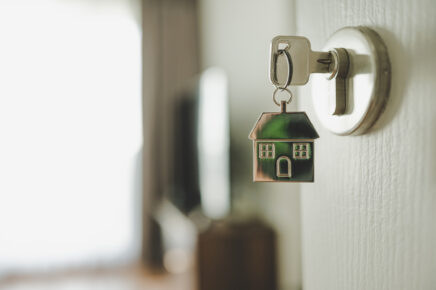Mortgage discharge fee definition
A mortgage discharge fee is a cost charged by your lender when you bid adieu to your home or investment loan.
Mortgage discharge fees are a bit like the ‘break-up fee’ of homeownership – they’re a reminder that when you’re moving on, your financial past still has a way of catching up with you. But the last thing you want is to be surprised by an additional expense at the very end of your loan.
The word ‘discharge’ refers to the process of removing a home loan from a property’s title. It is a necessary step between closing your mortgage and obtaining the official certificate of title (also known as title deed or land title), which confirms your ownership of land or property.
» MORE: Discharge of mortgage: What to expect
When is a mortgage discharge fee used?
At the start of your financial contract, the lender registers their security interest as mortgagee on the certificate of title, which is removed once you have completely repaid your home loan. While you are paying off your loan, the lender has a legal claim on the property and the title is held by a relevant government authority or land registry office.
There are several reasons why you might need to pay a mortgage discharge fee, including:
- When you sell your property. When you sell your property, you need to pay off your mortgage in order to transfer ownership to the new buyer. The mortgage discharge fee is typically paid by the seller, but it can be negotiated as part of the sale contract.
- When you refinance your mortgage. If you are refinancing your mortgage with a different lender, you will need to discharge your existing mortgage with your current lender. The mortgage discharge fee is typically paid when you settle on your new loan.
- When you pay off your mortgage. Once you’ve fully paid off your home loan, a mortgage discharge becomes necessary to eliminate the lender from your property’s title.
How much does a mortgage discharge fee cost?
Mortgage discharge fee amounts vary from lender to lender and can be as high as $1,000. The big four charge between $150 – $600, commonly around $350. But these fees may change at any time, so it is always best to check with your lender directly to confirm the current fee. Your discharge fees are listed in your loan documentation.
There may also be additional fees charged by your lender, such as a settlement attendance fee or a fee to register the discharge of mortgage with the land titles office.
The good news is that you can deduct mortgage discharge costs in the year they are incurred, provided that the mortgaged property was used for rental purposes.
» MORE: Costs to know when buying a house
How to reduce or avoid mortgage discharge fees
There are a few things you can do to reduce or avoid mortgage discharge fees:
- Shop around for a lender with low or no discharge fees. Some lenders offer no discharge fees on certain home loans.
- Negotiate the discharge fee with your lender. If you are selling your property, you may be able to negotiate with your lender to reduce or waive the discharge fee.
- Check for break fees before fixing your home loan rate. Discharging from a home loan with a fixed rate often involves paying a break fee for terminating the contract before the agreed upon time.

17 Types of Home Loans for Buyers, Investors and Property Owners
Know the common home loan types for Australian buyers, investors and property owners so you can choose the best option for you.

Dealing With Debt and Its Impact on Your Financial Health
You know what debt is, but you might not realise its true cost.

What is Principal and Interest on a Home Loan?
Principal is the amount of money borrowed from a lender; interest is the extra amount charged by lenders in exchange for using their funds.

How to Make Passive Income
Passive income can offer breathing space when your finances are tight, but whether a cash stream is passive or not isn’t always clear-cut.

